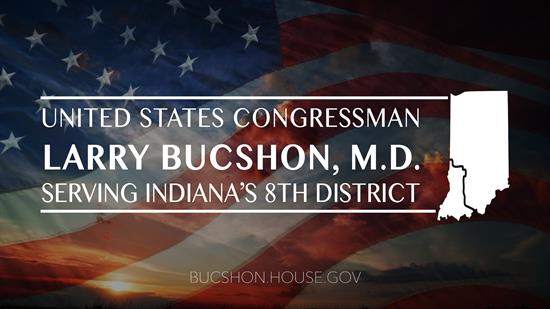Press Releases
Dr. Bucshon Advocates Increased Transparency of 340B Drug Program
Washington,
July 11, 2018
Tags:
Healthcare
(Washington, D.C.) – During today’s House Energy and Commerce Committee subcommittee hearing, Congressman Larry Bucshon, M.D. (IN-08) questioned witnesses on the need for improved transparency and greater oversight of the 340B drug program: “The 340B drug pricing program is an important tool that helps hospitals and other covered entities meet the healthcare needs of low-income and uninsured patients. 340B covered entities are able to purchase drugs for patients of their facilities at substantial discounts. However, over the past decade, the program has grown substantially and has operated with little transparency or oversight. Under current law, covered entities that have a positive return on 340B drug transactions are not restricted in how they may use the 340B revenue. Given the tremendous growth in the program, Congress needs to ensure it is operating as intended to continue its long-term viability.” – Dr. Bucshon
Background · From 2001 to 2017, the number of covered entities increased from 8,605 to 12,722. · Pharmacies sell and dispense 340B drugs on behalf of the covered entity. These pharmacies may be in-house, or covered entities may contract with outside pharmacies to dispense 340B drugs on its behalf. · Following Health Resources and Services Administration’s (HRSA) 2010 guidance allowing covered entities to dispense 340B drugs at more than one contract pharmacy, the number of contract pharmacies increased significantly from approximately 1,300 to more than 20,000. Additionally, according to HRSA data, in 2017 there were more than 46,000 contract pharmacy arrangements. · The Government Accountability Office reported that although the median distance between a covered entity and its contract pharmacy was 4.2 miles, 45 percent of DSH hospitals had at least one contract pharmacy farther than 1,000 miles away Types of covered entities that can participate in the program including: Hospitals · Children’s Hospitals · Critical Access Hospitals · Disproportionate Share Hospitals · Free-standing Cancer Hospitals · Rural Referral Centers · Sole Community Hospitals Health Centers · Federally Qualified Health Centers · Federally Qualified Health Center Look-alikes · Native Hawaiian Health Centers · Tribal/Urban Indian Health Centers Specialized Clinics · Black Lung Clinics · Comprehensive Hemophilia Treatment Centers · Title X Family Planning Clinics · Sexually Transmitted Disease Clinics · Tuberculosis Clinics · Ryan White HIV/AIDS Program grantees |

